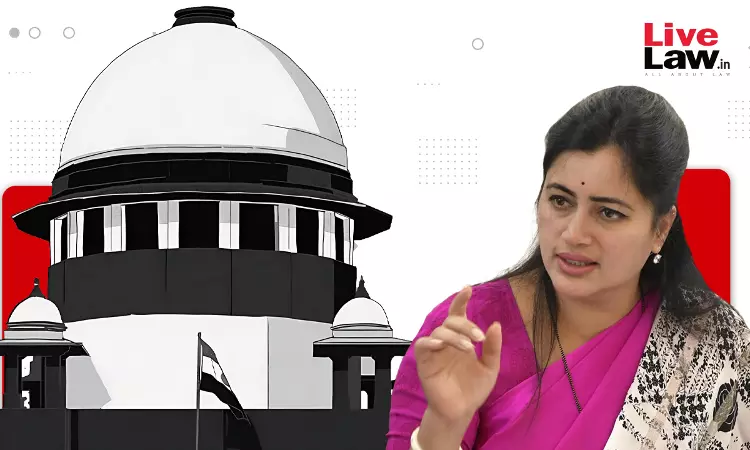Supreme Court Upholds Amravati MP Navneet Rana's Scheduled Caste Certificate, Sets Aside Bombay HC Judgment
Debby Jain
4 April 2024 12:02 PM IST

Next Story
4 April 2024 12:02 PM IST
In a major relief to Amravati MP Navneet Kaur Rana, who won 2019 Lok Sabha elections from a constituency reserved for Scheduled Castes, the Supreme Court on Thursday (April 4) reversed the judgment of the Bombay High Court which set aside her Scheduled Caste certificate.While pronouncing the verdict, the Bench of Justices JK Maheshwari and Sanjay Karol said that the Scrutiny Committee...
